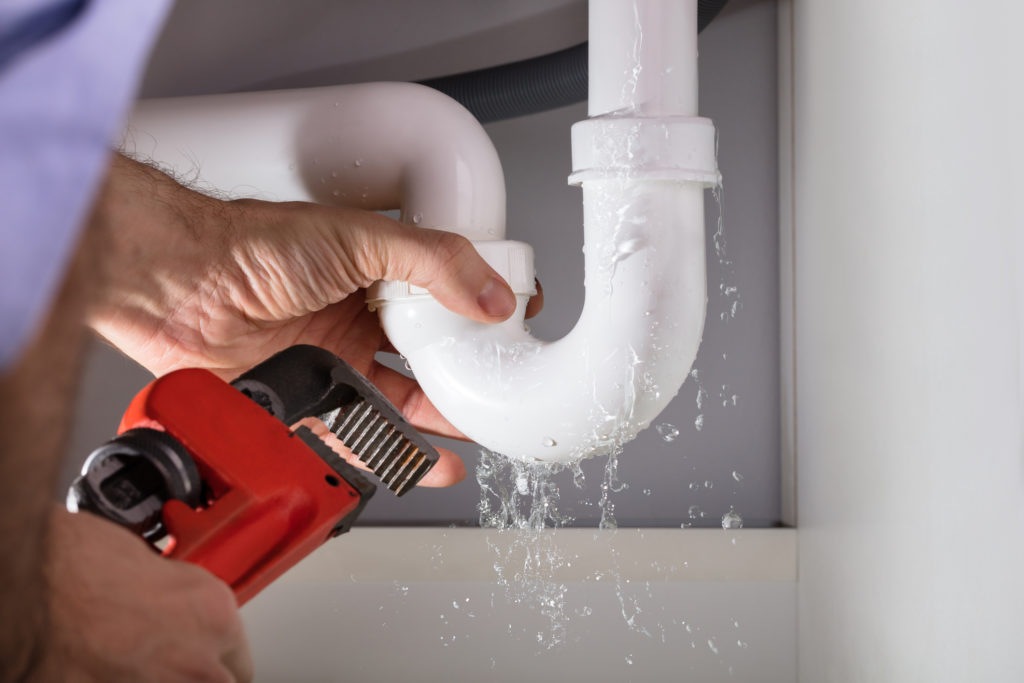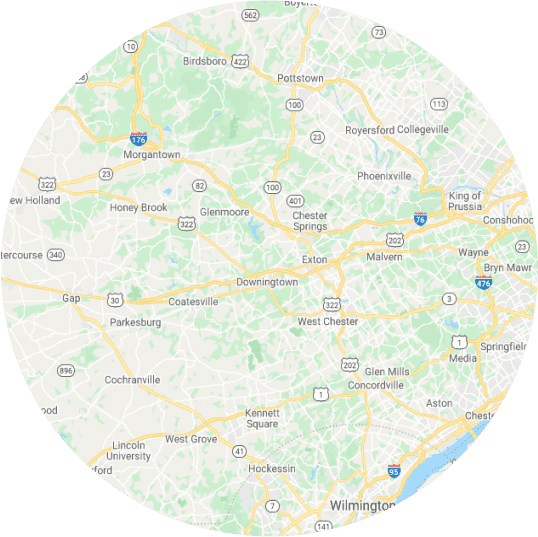What To Do When Your Pipes Burst
5 min Read
Every homeowner’s worst nightmare is discovering a burst pipe. When you’re unlucky enough to have this happen to your pipes, it’s essential to remain calm and take the appropriate steps to mitigate damage to your home and plumbing system. Taking immediate action to address a burst pipe will help you save on expensive repairs and replacements. Find out what to do when burst pipes have caused a plumbing emergency in your home by reading the steps below!
Have a burst pipe on your hands? Get the same-day solutions you need by calling the Mattioni Team at 610-400-8510 to schedule emergency plumbing repairs.
Signs Your Pipes Have Burst
Before you leap into action to address your burst pipes, it’s crucial to be able to recognize the signs that such a problem exists in the first place. Below are some of the telltale signs that indicate a pipe has burst somewhere in your plumbing system:
- Unexplainable fluctuations in water pressure
- Discolored or foul-smelling water
- Clanging or dripping sounds coming from the walls
- Presence of mold or mildew throughout the house
- Puddles beneath sinks
- Unusually high water bills
- Water stains on floors, ceilings, or walls
What Causes Pipes To Burst?
Pipes can burst for several reasons, many of which are preventable. The following are just some explanations for why you could experience a burst pipe (and how you can prevent it from happening altogether):
- Freezing temperatures: When water freezes inside a pipe, it causes pressure to build up within your system. If this pressure is not released, it can cause the pipe to burst. To prevent freezing pipes from bursting, keep your faucets on a low, steady drip during freezing winter nights or while away from home for an extended period. Leave the cabinet doors open beneath your sinks and keep your furnace running at a steady temperature to keep your pipes warm enough if you’re away on vacation.
- Tree root infiltrations: Aging pipes, in particular, are more susceptible to tree root infiltration. As tree roots grow, they seek water sources, preying on weak, corroded, or improperly installed sewer pipes. You can prevent this by planting any new trees as far away from your water pipes as possible.
- High water pressure: The ideal water pressure for the average home is between 40 and 45 psi. Water pressure higher than 60 psi is never recommended as this can increase the likelihood of experiencing a burst pipe. Ensure your system maintains the optimal water pressure, and contact a plumbing repair specialist if you’re unable to keep the water pressure from exceeding the recommended levels.
- Stubborn blockages: Severe clogging can cause pressure to build up within your pipes, similar to how it would if there were frozen water inside them. Inevitably, unattended blockages will cause the pipe to weaken under the increased pressure and burst. Prevent this from happening by keeping hair, grease, oils, and food products from entering your drains.
Steps To Take After Finding a Burst Pipe
Even if you’ve taken all the necessary precautions you can, a burst pipe can still happen. When it does, keep a level head and follow the steps below:
- Turn off main: Before you do anything else, you need to turn off the water supply to prevent any further pressure from building inside your system.
- Call a plumber: As soon as you’ve shut off the water supply, call your plumber. This may even be your first step if you’re unsure where the main shut-off valve is for your system.
- Clean the water: Clear away any puddles while you wait for your plumber to arrive to help prevent the spread of water damage and mold/mildew growth.
- Drain faucets: Remove any water that might be left in your system by turning your taps on and allowing the water to drain completely. Be sure to start with cold water and move to hot water, ensuring the water heater in your home is off.
- Let in warm air: Especially if the burst pipe is due to freezing conditions, it’s essential to warm up the area slowly to allow them to thaw out correctly.
- Keep doors open: Promote hot air circulation throughout your home by ensuring all the doors remain open — especially in rooms with exposed pipes.
- Repair sleeve: A temporary fix for a burst pipe is a repair sleeve, which you can place over the pipe to cover the hole and keep the water in the pipe so you can continue using the water in your home.
- Rubber, wood piece, and clamp: Another short-term fix while you’re waiting for plumbing repairs is placing a piece of rubber on the burst pipe, covering it with a woodblock, and clamping it all together. This won’t last as long as a repair sleeve, but it will provide some temporary relief until a professional arrives.
Call the Mattioni Team for Emergency Plumbing Services!
When a burst pipe disrupts your day, don’t hesitate to contact the Mattioni Team for the same-day plumbing repairs you need. Our team offers emergency pipe repair services throughout Chester County and the surrounding region. We’ve proudly provided emergency plumbing services for more than 80 years, offering long-term, reliable solutions that families can trust.
Contact us at 610-400-8510 to schedule emergency plumbing repairs today!






